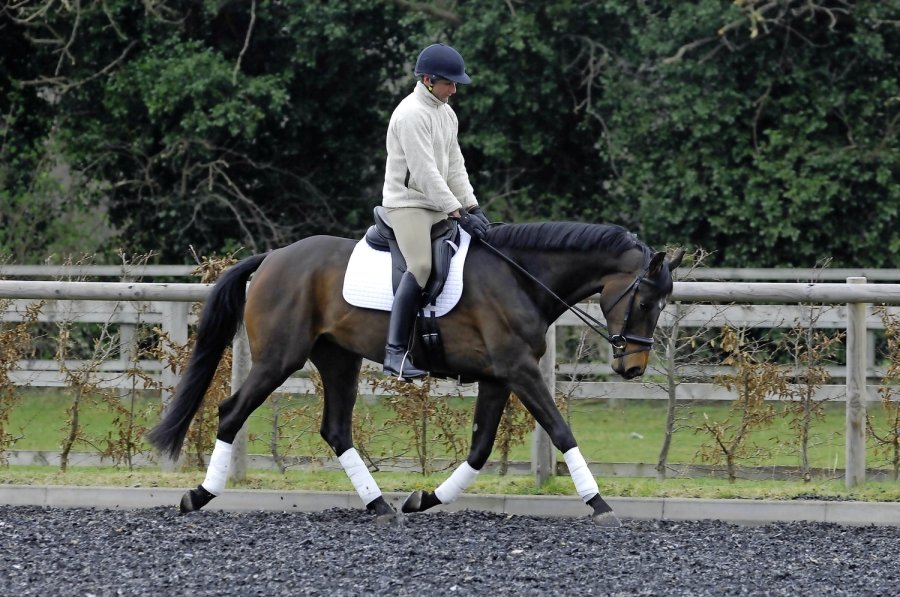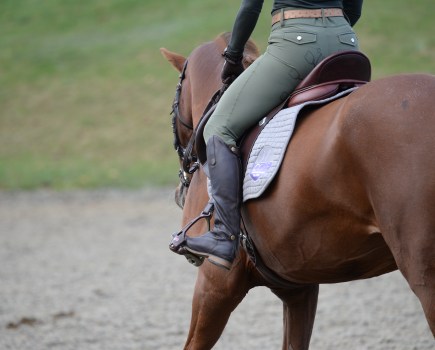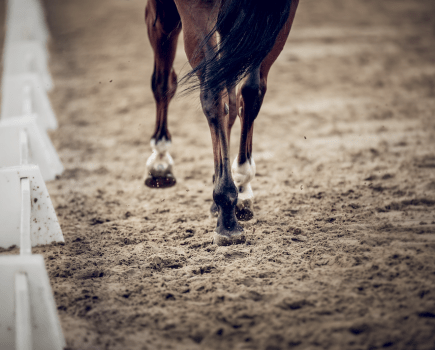Riding is a tough sport, especially when things start to go wrong. Whether self doubt is creeping in, you’re frustrated with your competition scores, or your horse is out of action due to injury, it’s natural to feel a bit down and unsure of what to do. If you’ve lost your motivation and are struggling to see a light at the end of the tunnel, psychologist Charlie Unwin has some techniques that you can use to help you deal with anxiety.
Retrain your brain
Feeling happy and healthy has a lot to do with our mental wellbeing. Exercising and socialising are ways we can give ourselves an instant boost, making us feel cheerful and positive and giving us a sense of achievement. But these are examples which rely on external sources to make us feel better. Instead we should be focusing on ways that we can thrive from the inside.
If you want to positively change your external world, you must positively change your internal world. The Thrive Project focuses on training ourselves in three areas: positive doing, positive thinking and positive feeling.
Positive doing
1. Have a plan
Have a clear plan gives you something positive to focus on. A plan is much more than a to-do list: it needs a clear, positive outcome. Even if it’s just getting the groceries, going for a walk, or checking in on your horse, by making it part of a plan, you will do it with more purpose.
2. Be consistent
Routine gives us predictability, and predictability gives us consistency. In simple terms, try to do things at the same time each day – getting up, going to feed the horses, mucking out.
Timing is important for generating routine as our brains unconsciously pick up on repeated patterns of behaviour. This makes the same behaviour easier over time. Get it right and your day will be punctuated with greater energy, greater quality and greater focus.
3. Learn to prioritise
It’s easy to fall in the trap of doing too many things at once, but if you focus on what’s most important to you, you’ll find yourself doing everything with more energy, more connection, more meaning and more productivity.
Take the opportunity to ask yourself – if I only did half the things I do, but I did them all twice as well, what would they be and what might I notice?
Positive thinking
1. Reflect and reinforce
When you have a situation that’s highly uncertain and you have little or no control, then you have the conditions in which anxiety and fear can flourish.
The mantra we should all be focusing on is ‘win the day’. This reminds us that no matter what happens in the outside world, our inside world will be nurtured and strengthened through us having stayed positive, proactive and purposeful in everything we do.
Reinforce this mantra at the end of each day by reflecting back and recalling your successes, no matter how small.
2. Setting everyday goals
Focusing on what we can control and letting go of what we can’t is a fundamental skill. It’s the main reason that some people thrive under stress while others struggle.
The difference is the individual’s ability to keep their attention on everyday goals. Using small goals as a mental handrail will help to keep you moving forwards, rather than thinking beyond the things you can control.
3. Practise optimism
Our brains are hard-wired to prioritise the things that threaten us, compared to the things that reward us. This is called ‘negative bias’.
When we are anxious, our mind becomes like a missile defence system on the lookout for incoming threats. Unchecked, this makes it ever harder to turn to positive thoughts. But this is exactly what we need to practise in order to reverse the cycle.
Write down two columns of thoughts. On the left-hand side, write down all the things that you worry about. On the right-hand side, write down all the things that are potential positives from your current situation. Continue to lengthen your positive list by adding one thing that you appreciate each day.
Don’t worry if you repeat yourself – there’s value in reminding yourself of its importance to you.
Positive feeling
1. Filter the information coming in
The best way to maintain a clear, positive head is by limiting the outside information you consume and when you consume it.
Where possible, turn off the notifications on your phone, and make it a habit to turn it off when you go to bed.
2. Take time to recharge
Be strict about giving yourself recovery time. Think about professional riders and their horses – they don’t train all day every day; rest days are as important to training as schooling sessions. Prioritise sleep as much as possible and take time to relax before bedtime.
The two things that disrupt the quality and quantity of our sleep the most are alcohol (sorry to be a party pooper, but the research is convincing) and the lack of an evening routine. Have a ‘golden hour’ before you head to bed to help you wind down in the same way every night.
3. Visualisation
Visualisation is a mental process that enables us to feel more prepared and confident towards specific activities or life events. The idea is to run through experiences in your mind and basically practise your emotions, which will help you to deal with the real life situation much better.
This is a skill I use extensively with athletes preparing for high-pressure performances, surgeons preparing for complex operations, special forces operatives about to conduct a dangerous mission – really anyone who wants to increase the quality of what they do and the confidence with which they do it.
These are extreme examples, but the reason we should all take time to practise visualisation is that it can help us to perform everyday activities with more confidence, more focus, more positivity, more patience and more connection.
Meet the expert: Charlie Unwin is a leading sports psychologist and mental coach who has trained with elite level athletes. In 2015 he co-founded Centre 10, which provides courses to help coaches and riders optimise their performance with sport psychology.










